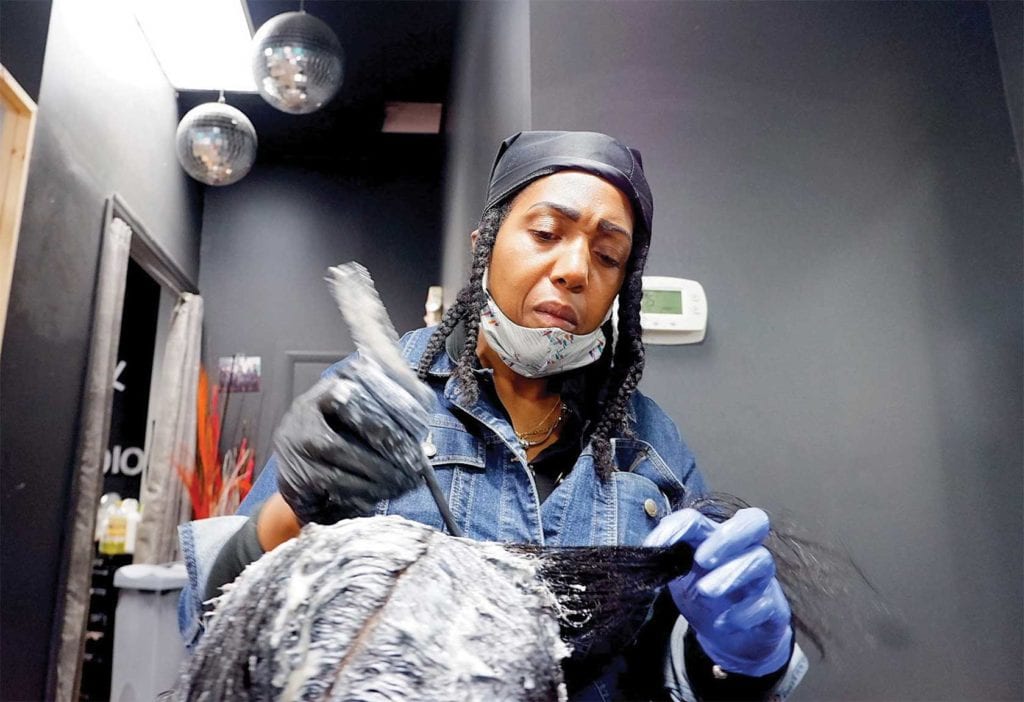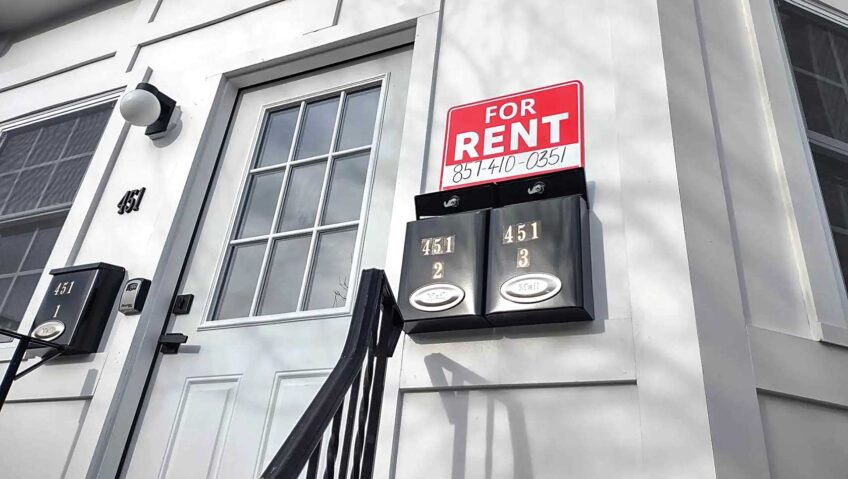Activists press to prevent evictions
Federal moratorium set to end June 30

While many Bostonians expressed elation at the end of the state’s COVID 19 restrictions, the end of the pandemic emergency may leave some renters and homeowners without a place to live.
Those who haven’t paid rent for months due to job loss have left many landlords with no way to pay their mortgages or cover repair costs, and when the federal eviction moratorium officially ends on June 30, landlords will have every reason to take tenants to court.
The Massachusetts eviction moratorium ended in October, leaving tenants to rely on protections from the U.S. Centers for Disease Control and Prevention. Though the CDC’s moratorium still stops non-payment evictions for those who apply for protection, evictions are reaching pre-pandemic levels, when it wasn’t as difficult to safely keep a job.
Across Massachusetts, landlords have filed about 17,000 eviction orders since Governor Charlie Baker’s moratorium ended.
Dorchester landlord and eviction activist Carolyn Lomax has not. Out of her four tenants, only two can currently pay rent, which sets her behind on her mortgage payments.
If she evicts them, Lomax tells the Banner, she doesn’t know where they will go.
“I think landlords are afraid, too,” she said.
Lomax said she finds eviction for nonpayment unfair, while she doesn’t have money for her mortgage for the same reason. Lomax owns a hair salon in Dorchester that closed down at the height of the pandemic and now operates at about 50% capacity.
While Lomax is the homeowner, she says Wells Fargo is the true landlord, taking in money from the government and deciding how to bail out citizens who have small businesses or own homes.
Referencing the bank bailouts after the 2008 recession, she said, “Wells Fargo received $25 billion as a bailout, to help them do what they do. You tell me they can’t bail me out so I can help my tenants?”
The one thing that would make this time easier, she said, is being able to pay what she owes on her mortgage entirely.
“It’s not that I haven’t been setting money aside,” she said. “My mortgage company, they want everything. They don’t want to work with me, even partially.”
Lomax is negotiating with her tenants on a one-on-one basis, but larger property owners have more demands, and possible evictions to deal with.
Tenants have been forming unions since the start of the pandemic — some spanning across neighborhoods, like the Fineberg Tenants Union organized by residents of buildings owned by Fineberg Property Management. The union had about 140 members across Greater Boston in March.
The Fineberg tenants have been bargaining for a company-wide agreement with their management, with little success.
In a letter to management dated March 9, the union wrote, “Our members have reported dozens of violations to Boston Inspectional Services since March 2020, and we have documented over 700 allegations of individual violations via our organizing and publicly-available reviews from the past 12 years.”
Dealing with this reported negligence during the pandemic took a toll on tenants already worried about eviction due to job loss.
To protect themselves, they requested a moratorium on evictions in all Fineberg properties during the COVID-19 emergency and six months after, and forgiveness of back-rent due to COVID-19 job loss, a protection the federal eviction moratorium does not provide.
The tenants also asked for basic repairs and timely response from staff within 24 hours of requests. Due to the lack of repairs, they proposed a 17% reduction in rent. Rents at some of the Fineberg properties, such as 1334 Commonwealth Avenue, start at $1,750 for a one-bedroom.
Dane McGoldrick, an elected member of the union, said in a statement that individual tenants have seen success, but Fineberg hasn’t responded to their overall demands.
“We know of a couple tenants who were being threatened with evictions that were stopped. At least seven tenants reported lower rent on their renewals and maintenance practices, [and] response times have improved in some cases,” he said.
The Massachusetts Legislature is currently considering extending one last line of protection: Chapter 257. The order, which delays eviction cases if the tenant is applying for emergency assistance, is currently set to expire on June 15 along with the state of emergency. Though it doesn’t apply to any eviction cases other than nonpayment, activists said that with some edits, it could be beneficial.
The House and the Senate will vote on it this week.
While landlords and tenants wait for more options, Lomax says her community is weathering the storm together.
“We decided that we were going to band together, keep things together, we were going to help those who couldn’t help themselves,” she said.






